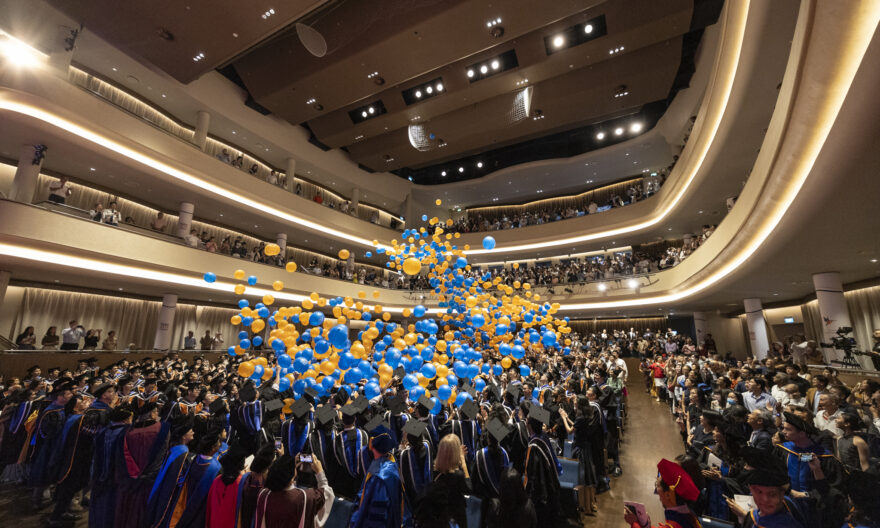Yale-NUS team emerges champion in Shell’s Imagine the Future Scenarios Competition

On 5 March 2018, a team of Yale-NUS students emerged champions in the regional finals of Shell’s Imagine the Future Scenarios competition.
The team, comprising Joshua Phua, Adila Sayyed, Benyamin Jamieson (all Class of 2019), Wen Kin Lim, Aditya Karkera and Ann Chen (all Class of 2020), impressed the judges with their rich references to history and comprehensive exploration of how technology, politics, society and individual choices will shape the future.
Since 2016, Shell has organised this competition for university students to imagine the future of more and cleaner energy in Asian cities and how it will change the way people live, work and play. This year, the theme of the competition was ‘More and cleaner energy in urban Asian and Middle Eastern homes in 2050: How we live, work, and play.’
The competition consisted of two rounds: a national finals held in January 2018 and the regional finals in March 2018, where the winning national teams competed in Singapore.
The Yale-NUS team won both the national finals and the regional finals, beating the winning national teams from Egypt and Thailand from the American University in Cairo and Chiang Mai University respectively. Their winning presentation was titled ‘A Binary World vs A Dispersed Planet’.
According to Benyamin, the team had imagined two disparate scenarios born out of rigorous research and risk accounting.
“In 2050, we might live in a world of high levels of invasiveness with regard to our private data, along with a strong degree of economic centralisation into few key conglomerates. Thus, this describes the binary world, where everything can be represented and accounted for in data that is centralised and personalised to a single individual’s biodata,” Benyamin explained.
“Another scenario we imagined is the dispersed world, where citizens and the populace reject an invasion of their private data and also seek to commodify the world’s next most valuable resource: information. This world is decentralised, physically and metaphorically, as several key factors prevent a heavy centralisation of both people and networks. Individuals take control of their own data to produce a different type of innovation,” he added.
On why she decided to participate in this competition, Adila shared that it was an opportunity to apply what she has acquired from her liberal arts education at Yale-NUS.
“The competition posed a very unique question; that is, how would the world look like in 2050? This was a perfect opportunity to put my knowledge into practice. The team made use of our collective knowledge of many different fields, from economics to history to even life sciences,” she shared.
“I am a History major, Aditya is an Economics major, Wen is a Life Sciences major, while Ann, Benyamin and Joshua are Philosophy, Political and Economics majors. The diversity in our academic interests was very useful when doing scenario planning. We brought a diverse range of perspectives to our meetings, as well as a range of internship and extra-curricular experiences.”
For Benyamin, the competition was also an opportunity to further explore current and future global issues.
“We entered this competition so that we could further our passions for understanding the future and discussing where the diverse and disparate groups of the world might fit in. The best memory from this experience was definitely meeting and working with other regional teams. We were joined by teams from Egypt and Thailand for the international round, and we spent time comparing our projections of the future. We were amazed at how different theirs were, based on their regional experience,” he said.
During the course of preparing for the competition, the team received support from Assistant Professor of Social Sciences (Political Science) Rohan Mukherjee who helped to review their draft report, and Programme Manager, Career Services Joanna Tan from the Yale-NUS Centre for International & Professional Experience (CIPE).
On winning the competition, Adila was extremely proud of the team. “We started working on this project since August 2017. We found time to skype with one another every week during the December holidays across six different countries. I’m very glad that our hard work paid off in the end. I think our X factor was definitely how everyone in the team complemented each other. Over the course of working on this competition, we have all become close friends and that definitely helped in making us the winning team,” she reflected.





